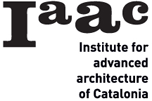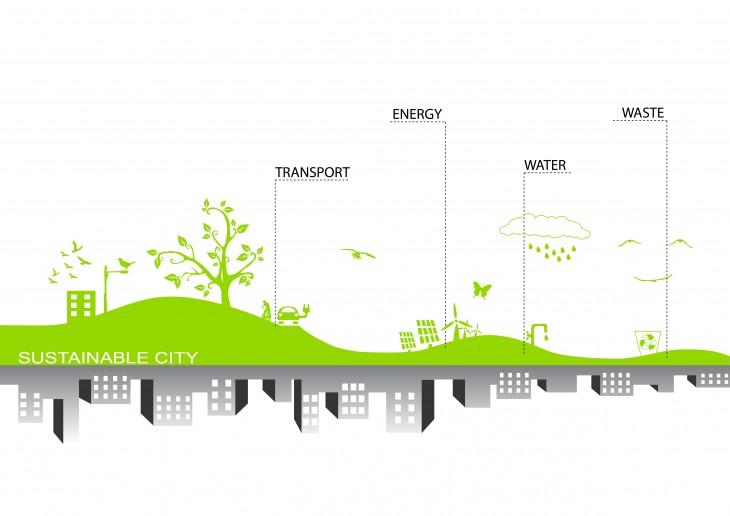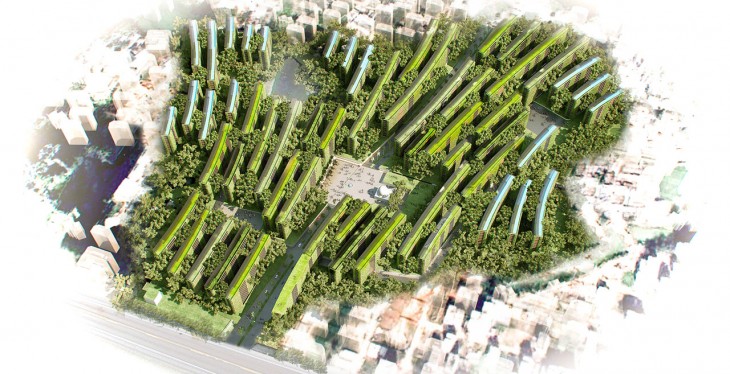Reason of the foundation is the worlds most excellent gift for a man. Knowledge, however, has its limits. The creative spirit of the designers and architects seeks them overcome the craving for knowledge, not to enter the future to design space for the man soared to perfection. To achieve adequate knowledge architect must broaden their horizons, certain knowledge and in other areas, in particular cooperate with other participants in the process of developing a better future for man. The text discusses the need for sustainable urban development which is a prerequisite for creating a sustainable city, as the basic matrix of the city required for life and the future of the city. To address this man should has knowledge of urban development, urban environment, environmental problems and social and intellectual norms in society variable financial and political parameters. The large number of complex parameters are needed knowledge, patience, perseverance and wisdom of all of us, and every mistake is costly punishable.
Architecture-Design often lack the recognition of macroeconomic and microeconomic variables. Most economic analyzes have rightly spatial research. For this reason it is necessary to find a common language for proper functioning. Construction of a new language requires research, the concept of broader spatial analysis in the design, architecture, urbanism. All the oppressed wider context and factors. The mind needs to have environmental, economic, social aspect and political identity.
Is there a possibility to do something new? What we can change?
Ensuring an appropriate level of useful environment in the current urban environment today is a significant problem. Despite the development of science and technology, many elements of the environment are an urban problem today. To achieve this goal it is necessary to develop an awareness of not only the individual, but the entire society. Economics as one of the key factors should determine priorities, the importance of projects that are invested and thus result. I think that knowledge of one key problem is important for further decision. Therefore, if we are aware, for example, the current state of energy availability in the world we should find a way to improve it. The problem arises because of not developed awareness for the benefit of mankind. The investor is willing to invest in a building of several thousand square meters, regardless of its architectural and social value, considering it will brings him a profit. Nevertheless, sustainable architecture and sustainable resources are completely ignored, because it might be unprofitable in a given time. Energy efficiency is important as a essential for the survival of human society.
Where is the exit? In the future Humanity should be significantly turn to the use of alternative (imperative) energy sources. Knowledge of markets, development needs and potential as a whole, established investigation strategies and strategies of industrial development, are essential in order to identify desirable investors who want a clear insight into the situation and potential of each sector, to invest in what interests them. In the cities of earlier epochs environmental problems were mostly related to the lack of proper infrastructure, underdeveloped hygienic level, overpopulation, over construction and others. Nowadays, problems related to the state of the environment are much more numerous and reaching to the very complex problems of technical nature and psychology of urban living . In order to enable further progress of the human population, it is necessary the adoption and implementation of sustainable development. The basic idea of sustainable development is meeting the needs of present generations, without compromising the possibilities for future generations to meet their own needs. Sustainable cities allow the architecture to transform itself, not to be traditional but useful, innovative and economical. As a result we have design that rationally relates to energy use and refrain consumption of limited natural resources. How environmental imperative and a moral imperative become by the fact that designers are constantly exploring models that would be sustainable design is actually implemented in the modern trends of architectural practice. Some of the models, which were presented at the European market actually stress the marketing potential of “sustainable” investments, and so “green building” are more profitable than the label on the real estate market in developed countries. In this case, architecture and economy are finding a common language, not hinder each other.
Sustainable development is based on protection, so it is conditioned by the need to upholding the concept of nature in order to provide the resources and services necessary for life. From this perspective, sustainable development means improving the quality of human life within the limits of the capacity of the submission of ecosystems that support it ‘.
This definition of sustainable development is a normative concept that includes a standard of behavior that should be respected if the human community tends towards satisfying their own needs of survival and well-being. The definition includes three basic components, namely: economic, social and component of environmental protection, which form the basis of sustainable development. All three components are mutually linked and interdependent, and therefore require that everything is being done in the field of development is in line with each of them separately.
When it comes to urban sustainability, it must be borne in mind that cities have never been self-sustaining through history, and that they probably never will be in the true sense of the word. The city, as a man’s environment, had to meet its biological, environmental, social, economic, aesthetic and other requirements and needs that have evolved with the development of civilization. In addition, cities are ‘producers’ external influences on the environment, both positive and negative. How is the growing awareness of aspects of environmental pollution associated with urban living and quality of life in cities, increasingly provoking questions about the relationship of the positive to the negative impact and proof that this relationship is disrupted. As a result, more attentiveness to the capacity of the submission of a sustainable city overall area needed a system that would support life in the city, through the production of goods, resources and acceptance of waste materials from the city often called ecological rate city. It can be concluded that sustainable urban development can only be achieved if the system is established renewing his energy, human, environmental and technological potential.
Cities today are not only a reflection of the society within which the finding they are more a reflection of society is global. Or how Mumford wrote in 1961 in his book ” The city in history ”: ” … slowly we went from being a city that symbolizes the world, to the world that in many practical aspects of becoming a global city ‘. It can be argued that each generation has the right to regulate their environment according to their needs and capabilities, however there is also a parallel obligation of this generation to their successors, in the coming generations, leave enriched, and not wrecked space. The city is one of the artificial creation and its sustainable development in terms of ecological balance can be achieved only if all urban processes are controlled and synchronized with the laws of the natural environment. To achieve the goals of sustainable development, it is necessary to understand that cities play a significant role in this process.
As a development can take and developing of Dubai. Economics allowed expansion and development of the city. The city has in recent years significantly progressed, we can not omit the worldwide economic crisis, which did not avoid this town, but good economic organization allowed the continuation of his progress, urbanization, and lately concept of green architecture. Projects are based on hundreds of lesser energy and water consumption.
To answer the question of what is a sustainable city, it is necessary to sustainability seen in the wider context. It means that one should not only look and talk about the environment in the city, but also to take into account the role that the city has in a broader context. To achieve this goal should be to act as a company which has developed awareness about their future. The model sustainable city, besides it’s strictly defined physical boundaries, reflecting the social and matrix of the city . This model is manifested through a myriad of different forms, depending on the historical heritage, culture, economic base, climatic, geographic and geopolitical characteristics, to all these forms at the end reduced to only a few variables that determine it. Sustainable city no ” recipe ” behavior towards sustainability, but should have defined the elements of measurement achieved. The city can only be considered sustainable if its governing structure the entire planet is seen as unique.
Cities should be considered for places that serve its attractiveness as drivers of economic development in terms of creativity, innovation and the creation and sharing of knowledge, the stimulation of proactive innovation and educational policies, on sustainable construction, architecture and urban space use, the high development of the local economy, the exploitation of the architectural values, historical heritage buildings and public spaces through the development and reconstruction of the urban landscape.
Cities need to set the positive principles of urban spatial development, which will be based on:
balanced economic growth and territorial organized activities, with a polycentric urban structure, strong metropolitan region that can provide services of general economic interest, compact structure of settlements with limited urban sprawl, a high level of environmental protection and quality of life in the city and surrounding areas. Sustainable cities must have attractive open public spaces and promote sustainable, inclusive and healthy mobility in a way that cycling and hiking trails that are attractive, and public transport favored. Increased energy efficiency in buildings reduces the economic and energy vulnerability, and associated innovations, technologies and services in the building and energy are important drivers of local development.
Common approach to solving the problem of exclusion, the energy poverty and better housing conditions come to the key elements of development of the city so that the city becomes more beautiful and lively, but also more competitive and eco-friendly. Building a “green and healthy” cities goes beyond simply reducing CO2 emissions. We come to an integrated approach to environmental protection and energy sector in which many components of natural ecosystems are intertwined with those of the social, economic, cultural and political urban system in a single system. His influence is essential for avoiding rural depopulation and to promote balanced territorial development. The question is whether this problem can be solved on a global level in view of the disparities between the countries in the world have never been more obvious.How to awaken man’s awareness of the efficiency of energy resources and the value of what we have to do. Why not let the natural functions, existing natural techniques to be used for greater efficiency. Every place in the world has ups and downs, problems to be solved but the problem lies in spreading the incentives of his subjects.
Image references:
https://www.google.com/search?q=sustainable+dubai&biw=1600&bih=746&source=lnms&tbm=isch&sa=X&ei=DEqGVO6IOcLxUpCJg-gP&sqi=2&ved=0CAcQ_AUoAg
https://www.google.com/search?q=sustainable+cities&biw=1600&bih=746&source=lnms&sa=X&ei=OkqGVNuRGYHlUri2gugP&ved=0CAUQ_AUoAA&dpr=1



